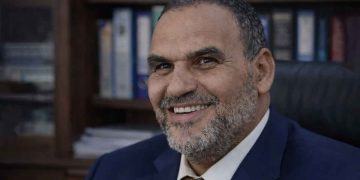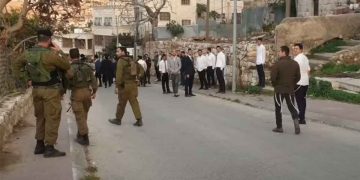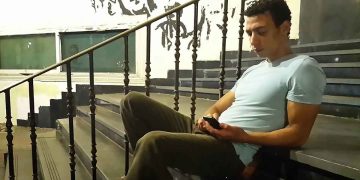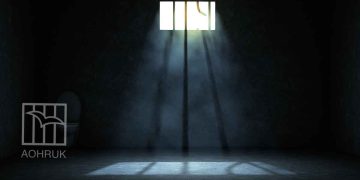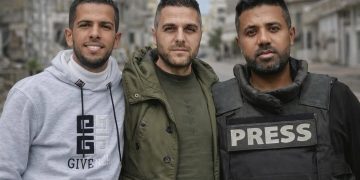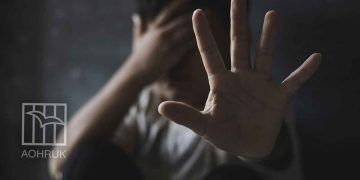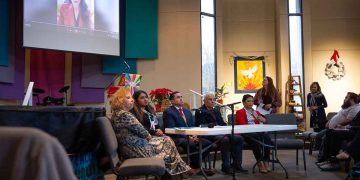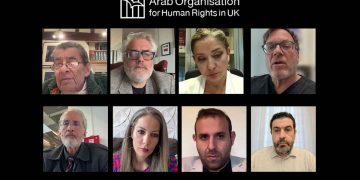Arab Organisation for Human Rights in the UK (AOHR UK) organised a webinar on November 4, 2024, titled “Justice and Humanity Under Threat: Israeli Campaigns Targeting the ICC and UNRWA.” This event brought together distinguished experts to examine the ongoing pressures on international bodies such as the International Criminal Court (ICC) and the United Nations Relief and Works Agency (UNRWA) from Israeli state actors. The discussions delved into the implications of recent legislative actions, threats, and external influence campaigns targeting these institutions, underscoring the challenges faced by the ICC and UNRWA in upholding justice and providing humanitarian support within occupied Palestinian territories.
The webinar featured prominent speakers with extensive expertise in international law, human rights, and Palestinian advocacy. The panel included Prof. Michael Lynk, Former UN Special Rapporteur on the Occupied Palestinian Territories; Prof. Stephen Zunes, Professor of International Security and Foreign Policy at the University of San Francisco; Dr. Lex Takkenberg, Senior Advisor at ARDD and Former Director of UNRWA Operations; Dutch Lawyer Haroon Raza, Lawyer of the march30movement and the Hind Rajab Foundationa; Dr. Emilio Dabed, a Palestinian Chilean Lawyer and Professor of Law; and Sara Flounders, Co-Director of the International Action Center. Each speaker brought unique perspectives on the legal, humanitarian, and geopolitical aspects of Israel’s actions and the broader international response.
Prof. Michael Lynk began his contribution by addressing Israel’s position within the United Nations in light of its recent actions, which he described as warranting reconsideration. He outlined several key incidents, including the Prime Minister of Israel’s speech at the UN General Assembly in September, labeling it as a “house of darkness” and implying anti-Semitism. Lynk highlighted legislative moves by Israel’s Knesset to shut down UNRWA operations in Palestinian territories, attacks on UN schools, and the killing of over 230 UN workers in Gaza, which he noted as an unprecedented toll in a single conflict or war. Additionally, Lynk pointed to Israel’s recent rejection of a ruling by the International Court of Justice.
In further elaboration, Lynk cited the continuous disregard by Israel for over 30 UN Security Council resolutions over the past 45 years, spanning issues such as the illegal annexation of East Jerusalem, failure to uphold the Fourth Geneva Convention, and condoning settler violence against Palestinian civilians. He argued that Israel’s repeated breaches, including those related to the inadmissibility of acquiring territory through force, clearly violate the UN’s foundational principles. Given the long-standing defiance, Lynk questioned whether Israel’s membership in the United Nations should be re-evaluated, referencing the historic precedent of apartheid South Africa, whose membership was ultimately revoked in the 1970s.
Lynk concluded by discussing the UN General Assembly’s recent directive for Israel to end its occupation and evacuate settlers within 12 months, a mandate he deemed unlikely to be honored by Israel. He warned of a potential crisis in international diplomacy by next September, as the UN and the global community confront Israel’s continued occupation, likely sparking tension with the United States. Additionally, Lynk commented on the recent replacement of a judge on the ICC pre-trial panel deciding on arrest warrants, noting that the judge’s previous remarks about complementarity should not influence her current role. He emphasized the importance of a fair review process, voicing his hope that the ICC’s actions would proceed impartially and with due regard to Israel’s war crimes.
Haroon Raza commenced his contribution by discussing a recent complaint lodged with the Dutch Public Prosecutor’s Office concerning the Israeli threats against the ICC. He highlighted the ongoing scrutiny surrounding the ICC’s investigation into war crimes, crimes against humanity, and genocide occurring in Palestine, emphasizing that these threats target the ICC’s independence. He referenced a report from The Guardian, which revealed that one ICC judge had been subjected to intimidation, allegedly orchestrated by former Mossad leadership, lasting for nearly a decade. Raza noted that Dutch parliamentarians have raised questions about the role of Dutch authorities in ensuring the ICC’s security, particularly given the threats from both Israeli officials and certain US senators.
Raza expanded on the complaint, filed by a law firm specializing in international humanitarian law, which accused both Israeli security personnel and American senators of attempting to coerce the ICC. According to Raza, these US senators had allegedly threatened action against the ICC should it pursue cases against Israeli officials. He also detailed how Israeli officials have allegedly resorted to physical intimidation tactics. While the specifics of the investigation remain undisclosed due to national security claims, Raza expressed confidence that the Dutch Prosecutor’s Office possesses sufficient grounds to advance the investigation, potentially even leading to prosecutions.
In concluding, Raza expressed concern over what he perceived as a coordinated effort to undermine the ICC’s work, suggesting this was part of a larger pattern of harassment against ICC officials. Citing his own experience in filing complaints against over a thousand Israeli soldiers, he argued that recent harassment accusations against ICC Prosecutor Kareem Khan might be attempts to delegitimize the ICC’s actions. Raza warned that Israel’s growing unease with international scrutiny likely stems from awareness of potential accountability for war crimes and crimes against humanity. He underscored the need for vigilance to ensure that the ICC can continue its mandate effectively, free from external threats and coercion.
Dr. Lex Takkenberg opened his remarks by addressing recent legislation passed by Israel’s Knesset, which effectively demands the cessation of UNRWA activities in areas under Israeli control, including East Jerusalem. He highlighted that these legislative measures represent a significant escalation in Israel’s long-standing opposition to UNRWA, marking a culmination of years of increasing hostility, especially since the onset of the recent war in Gaza. Takkenberg detailed how these laws give the Israeli Ministry of Foreign Affairs the authority to revoke its agreement with UNRWA, a drastic shift from the arrangement established in 1967, whereby Israel had initially requested UNRWA to continue operations in occupied territories, including East Jerusalem.
Takkenberg emphasized the legal and humanitarian crisis these legislative measures could trigger, especially for Palestinian refugees who rely on UNRWA as a lifeline, particularly in Gaza, where the agency coordinates vital aid delivery in collaboration with other UN entities and humanitarian groups. He warned that if Israel enforces these measures, the repercussions would be severe, potentially inciting further unrest. Additionally, Takkenberg highlighted that these actions violate three ICJ orders and the advisory opinion from July, which collectively demand that Israel enhance, not obstruct, humanitarian aid access. He underscored the international community’s responsibility to counter Israel’s push to sever UNRWA’s critical role.
Concluding his remarks, Takkenberg described the measures being considered by the United Nations in response to this unprecedented situation, including a potential emergency General Assembly session and a Security Council resolution calling for a ceasefire with direct reference to the UNRWA legislation. He also mentioned that nations like Norway and Malaysia are advocating further action, including possibly suspending Israel’s UN credentials. Takkenberg expressed doubt that Israel would heed Western calls to reverse these actions, but he stressed that the international community must remain resolute in safeguarding UNRWA’s mission and, by extension, the welfare of Palestinian refugees who rely on it amid the ongoing crisis.
Prof. Stephen Zunes began by highlighting the active role of the United States in obstructing the ICC’s indictments against Israeli officials, including Netanyahu and Gallant. He noted that the Biden administration’s reaction to a prominent report from a panel of international jurists and legal scholars recommending these indictments marked an unprecedented stance. According to Zunes, President Biden openly condemned the report, marking the first time in U.S. history that a sitting president explicitly sided with suspected war criminals over international law. He emphasized the irony of Biden’s denunciation, given that the report did not challenge Israel’s right to self-defense, yet the administration framed it as an affront to Israel’s security.
Zunes further illustrated the U.S. government’s unwavering support for Israel by recounting statements from Secretary of State Antony Blinken, who labeled the ICC’s actions as “shameful” and dismissed them outright. He highlighted that the ICC prosecutor, Kareem Khan, had meticulously reviewed the recommendations, finding reasonable grounds to believe Israeli officials were culpable for war crimes and crimes against humanity. Zunes underscored the hypocrisy of the United States, which only recently supported ICC indictments against Russian officials, while rejecting ICC jurisdiction in Palestine on the grounds that Israel is not a party to the Rome Statute. He noted that this stance ignored the fact that Palestine acceded to the statute in 2015, establishing ICC authority over crimes on its territory.
Concluding his remarks, Zunes criticized the broader double standard in U.S. foreign policy, where support for the ICC is contingent upon its alignment with American interests. He referenced a bipartisan 2001 bill, known as the Hague Invasion Act, which permits the U.S. to employ any means, including military force, to prevent the detention of American or allied personnel by the ICC. Zunes argued that this deep-rooted opposition to international humanitarian law reflects a pattern of enabling allied nations, such as Saudi Arabia, in violent campaigns with impunity. He contended that this U.S. stance assures allied governments they can continue oppressive policies with American backing, fostering an environment where perpetrators of war crimes feel protected from accountability.
Dr. Emilio Dabed began his remarks by critiquing the double standards of Western powers, particularly the United States and Europe, in the application of international law. He argued that the reliance on international courts to address these double standards is inherently flawed, as these courts are themselves influenced by the same powers. According to Dabed, international courts, rather than upholding justice, often serve as instruments for administering selective violence. This paradox, he argued, reveals the complicity of these institutions in perpetuating the very injustices they claim to counter. He cited the ICJ’s recent genocide case concerning South Africa as an example, pointing out the court’s failure to demand a ceasefire as a provisional measure, despite acknowledging the possibility of genocide.
Dabed further elaborated on this selective enforcement by noting that the ICJ has previously mandated unilateral ceasefires, as seen in the Russia-Ukraine case, but has refrained from doing so in cases affecting non-Western nations, particularly those involving Arab or African communities. He asserted that the ICJ’s hesitance to enforce a ceasefire for Gaza reveals an inherent bias, where the court refrains from fully acknowledging the plight of communities it perceives as “others.” Dabed questioned the ICJ’s credibility, arguing that its decisions reflect a racial and geopolitical bias that sidelines the needs of Palestinians and others in similar situations. He maintained that this selective application of international law ultimately undermines the legitimacy of these institutions.
In concluding, Dabed suggested that international law has been co-opted to limit the aspirations of oppressed communities, dictating what they can seek and how they may resist. He criticized how Palestinians are restricted to international humanitarian law, which he described as the “law of the victim,” preventing them from fully exercising their right to resist oppression. Dabed contended that the ICJ’s reluctance to classify Israel’s occupation as aggression is a clear indication of its bias. He argued that by refusing to recognize Palestinians’ right to resist under the Geneva Conventions, the ICJ further entrenches a system where international law is weaponized to control rather than liberate. This selective enforcement, he concluded, perpetuates a narrative that denies Palestinians and others the legal tools necessary for genuine self-determination.


